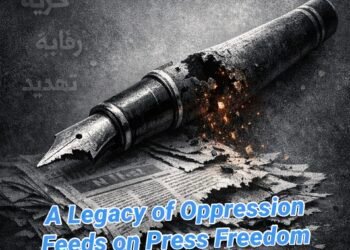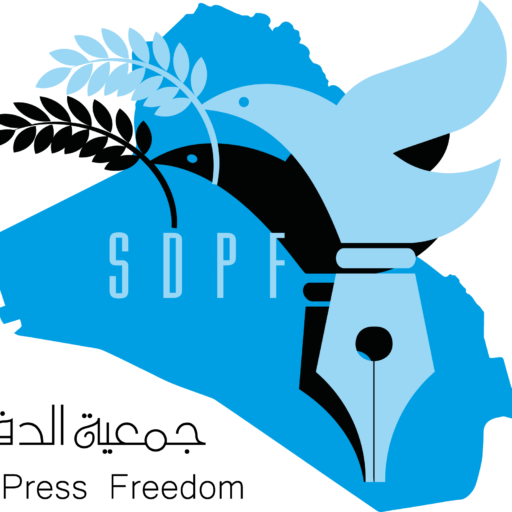8/5/2023
The Union of Press Freedom is watching with great caution the Iraqi Council of Representatives’ insistence on proceeding with the second reading of the “Freedom of Expression, Assembly and Peaceful Demonstration” law, that contradicts with the vision of legal, academic, cultural and journalistic elites and all stakeholders related directly to this law.+
The competent and concerned civil society organizations agreed (in previous parliamentary sessions) on drafting the law in line with the constitution and international charters and treaties, but the legislative authority ignores this, and insists on proceeding with the use of a draft law that includes many restrictions contrary to the principles of the constitution and international treaties and covenants, as a political card or a tool to manipulate public opinion.
This is a blow to the democratic foundations guaranteed and stipulated in the Iraqi constitution, and ignoring public opinion that aspires to expand freedoms in accordance with the principles of international conventions that Iraq has signed and considered as an approach to the new democratic Iraq, as well as contrary to the opinion of civil society organizations, political and cultural actors, journalists, academics, jurists, and anyone whose interests are affected by the law.
The Union affirms that the current draft law, which the Iraqi *Parliament insists on reading further, contains several problems and violations, the most prominent of which can be summarized as follows:
1- With regard to the objectives of this law and in the second article thereof, which states (this law aims to guarantee and regulate freedom of expression of opinion by all means, freedom of assembly and peaceful demonstration and the right to know without prejudice to public order or morals and the identification of the bodies responsible for their organization), this law confuses freedom of expression of opinion, which the Constitution gives full and unrestricted freedom, and the freedom of assembly and peaceful demonstration, which is also guaranteed by the Constitution without restrictions, except with regard to its regulation by law, in accordance with democratic values and standards set by international conventions and covenants.
2- In Chapter III, on freedom of assembly and peaceful demonstration, this law follows a clear path that is not so much an organizational direction as it is a trend that clearly aims to prevent any idea of protest, as stipulated within Article VII; conditions and procedures with which it is not possible to even imagine the existence of a peaceful protest, and cancels this provision in the Freedom of Assembly Law issued by the Coalition Authority No. (19) of 2003, which requires just “informing” the security authorities for the purpose of demonstrating to protect them, while the current legislator is trying to oblige protests with approvals of the Administrative authorities to demonstrate, according to criteria impossible to implement, so how can any authority agree to be opposed by demonstrations?
3 – The entirety of the paragraphs of this law are sealed with the restrictions of “community morals, public order, sacred characters”, and other floating and stretched concepts without specifying a clear meaning for them, which is easy to interpret in any direction desired by the authorities, which reflects an authoritarian legacy, and an undemocratic approach, because the democratic system by its nature does not allow the existence of such concepts, because they clearly allow the authorities to dominate and oppress any person or group, and the argument is these concepts that no one knows what they mean and what their legal limits are.
The essence of the democratic system is the agreed constitution that regulates the relationship between state institutions and society, and in the preamble of this constitution and its articles are placed principles and general ideas that define the identity of this state, and draw its relationship with society and individuals through values aware of the text, and supposed to be aware of the political and civil elites. It is not permissible through the 2005 Constitution in force to legislate a law that contradicts it, that is, whether it conflicts with its written articles, or with the implicit values adopted in its preamble, or with Democracy contexts that the Constitution provides for its adoption.
If the idea of the existence of the law is in the public interest and social stability, this law, through all its articles, only serves the interest of those in charge within the political system in domination and oppression, suppressing any voice opposing it, preventing any social or political movement from speaking in the face of corruption, eventually ruining the administration and loss of the country.
The “Union of Press Freedom” in Iraq calls on the legislative authority to stop the series of legislation and proposals of laws that violate the constitution, and to abide by the parliamentary oath, constitutional clauses, charters and international treaties, and to abide by the principle of the people as the source of authorities and legislation.






